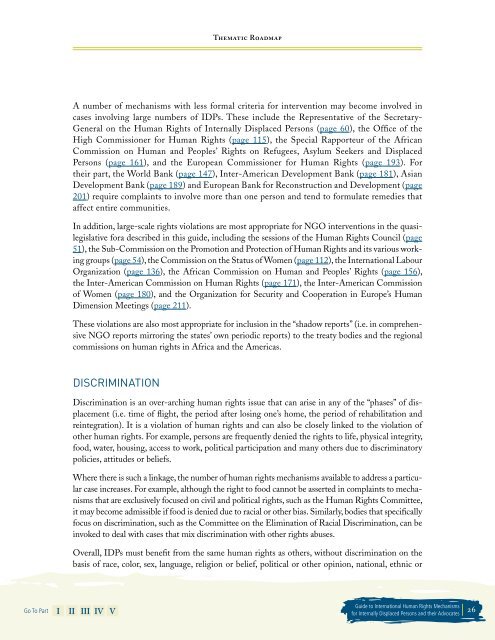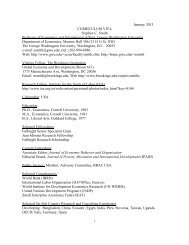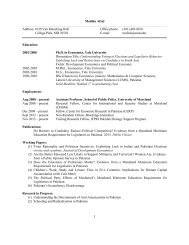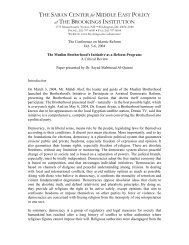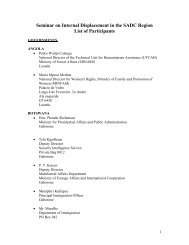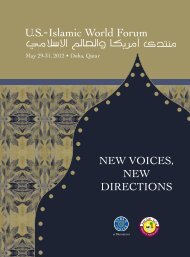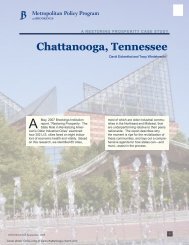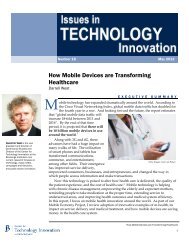Guide to International Human Rights Mechanisms - Brookings
Guide to International Human Rights Mechanisms - Brookings
Guide to International Human Rights Mechanisms - Brookings
Create successful ePaper yourself
Turn your PDF publications into a flip-book with our unique Google optimized e-Paper software.
Go To Part I II III IV V<br />
A number of mechanisms with less formal criteria for intervention may become involved in<br />
cases involving large numbers of IDPs. These include the Representative of the Secretary-<br />
General on the <strong>Human</strong> <strong>Rights</strong> of Internally Displaced Persons (page 60), the Office of the<br />
High Commissioner for <strong>Human</strong> <strong>Rights</strong> (page 115), the Special Rapporteur of the African<br />
Commission on <strong>Human</strong> and Peoples’ <strong>Rights</strong> on Refugees, Asylum Seekers and Displaced<br />
Persons (page 161), and the European Commissioner for <strong>Human</strong> <strong>Rights</strong> (page 193). For<br />
their part, the World Bank (page 147), Inter-American Development Bank (page 181), Asian<br />
Development Bank (page 189) and European Bank for Reconstruction and Development (page<br />
201) require complaints <strong>to</strong> involve more than one person and tend <strong>to</strong> formulate remedies that<br />
affect entire communities.<br />
In addition, large-scale rights violations are most appropriate for NGO interventions in the quasilegislative<br />
fora described in this guide, including the sessions of the <strong>Human</strong> <strong>Rights</strong> Council (page<br />
51), the Sub-Commission on the Promotion and Protection of <strong>Human</strong> <strong>Rights</strong> and its various working<br />
groups (page 54), the Commission on the Status of Women (page 112), the <strong>International</strong> Labour<br />
Organization (page 136), the African Commission on <strong>Human</strong> and Peoples’ <strong>Rights</strong> (page 156),<br />
the Inter-American Commission on <strong>Human</strong> <strong>Rights</strong> (page 171), the Inter-American Commission<br />
of Women (page 180), and the Organization for Security and Cooperation in Europe’s <strong>Human</strong><br />
Dimension Meetings (page 211).<br />
These violations are also most appropriate for inclusion in the “shadow reports” (i.e. in comprehensive<br />
NGO reports mirroring the states’ own periodic reports) <strong>to</strong> the treaty bodies and the regional<br />
commissions on human rights in Africa and the Americas.<br />
DISCRIMINATION<br />
Thematic Roadmap<br />
Discrimination is an over-arching human rights issue that can arise in any of the “phases” of displacement<br />
(i.e. time of flight, the period after losing one’s home, the period of rehabilitation and<br />
reintegration). It is a violation of human rights and can also be closely linked <strong>to</strong> the violation of<br />
other human rights. For example, persons are frequently denied the rights <strong>to</strong> life, physical integrity,<br />
food, water, housing, access <strong>to</strong> work, political participation and many others due <strong>to</strong> discrimina<strong>to</strong>ry<br />
policies, attitudes or beliefs.<br />
Where there is such a linkage, the number of human rights mechanisms available <strong>to</strong> address a particular<br />
case increases. For example, although the right <strong>to</strong> food cannot be asserted in complaints <strong>to</strong> mechanisms<br />
that are exclusively focused on civil and political rights, such as the <strong>Human</strong> <strong>Rights</strong> Committee,<br />
it may become admissible if food is denied due <strong>to</strong> racial or other bias. Similarly, bodies that specifically<br />
focus on discrimination, such as the Committee on the Elimination of Racial Discrimination, can be<br />
invoked <strong>to</strong> deal with cases that mix discrimination with other rights abuses.<br />
Overall, IDPs must benefit from the same human rights as others, without discrimination on the<br />
basis of race, color, sex, language, religion or belief, political or other opinion, national, ethnic or<br />
<strong>Guide</strong> <strong>to</strong> <strong>International</strong> <strong>Human</strong> <strong>Rights</strong> <strong>Mechanisms</strong><br />
for Internally Displaced Persons and their Advocates 2


